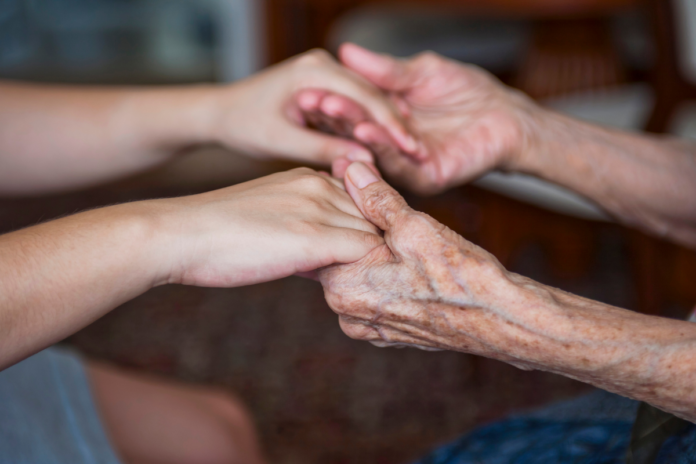As our loved ones grow older, their safety becomes a top concern. Thankfully, numerous safety devices for seniors exist, designed to offer peace of mind and enhance their independence. This guide aims to help you navigate these devices, highlighting their importance and unique features.
Personal Emergency Response Systems
Pioneering the world of safety for seniors, Personal Emergency Response Systems (PERS) are paramount. They allow seniors to instantly call for help, even if they can’t reach a phone. This is achieved through a simple button, worn as a pendant or a wristband, that when pressed, triggers an alert to a call center or designated emergency contact. The simplicity of the design, and the immediate nature of the assistance it provides, makes it a crucial addition to any senior’s home safety equipment.
Fall Detection Sensors
In addition to PERS, fall detection sensors are another key elderly safety product. These sensors can be integrated into wearable devices like watches or can be standalone devices installed at key locations in the home. If a fall is detected, these devices automatically send an alert to a healthcare provider or family member. This automated alert system removes the need for seniors to activate a call for help, providing an additional layer of safety.
Medication Management Devices
Managing medication can be a challenging task, especially for seniors with complex prescriptions. That’s where medication management devices come into play. These digital tools can be programmed to alert seniors when it’s time to take medication and even dispense the right dose. Their ease of use and potential to prevent medication mistakes make them invaluable for seniors’ safety and well-being.
Smart Doorbells & Security Cameras
Next on our list are smart doorbells and security cameras. They serve a dual purpose: allowing seniors to see who is at their door without needing to open it and providing a security measure against potential intruders. Many of these devices provide real-time video feeds directly to a smartphone, meaning seniors can interact with visitors or alert authorities if needed. This technological solution contributes significantly to seniors’ safety and independence.
Carbon Monoxide & Smoke Detectors
Of course, not all threats come from outside the home. That’s why every household should be equipped with carbon monoxide and smoke detectors. Many modern versions of these devices are “smart,” meaning they can send alerts to smartphones in addition to sounding an alarm. Seniors, their family members, or caregivers can be promptly alerted of potential danger, even if they’re not in the immediate vicinity.
Bed Alarms
Bed alarms prove to be extremely valuable safety devices, particularly for seniors affected by conditions such as dementia, which may lead to wandering tendencies. These alarms serve as an effective means of alerting caregivers or family members when a senior leaves their bed, ensuring prompt response and intervention when necessary. By providing an extra layer of security, bed alarms offer reassurance and peace of mind, especially during nighttime hours when potential risks are heightened.
GPS Trackers
Another noteworthy safety device for seniors is the GPS tracker, which offers an additional level of protection, especially for those who enjoy outdoor activities such as walking or driving. GPS trackers can be conveniently worn or placed in vehicles, enabling caregivers or family members to swiftly locate seniors in case they become disoriented or find themselves lost.
Thanks to their user-friendly design, these devices are easy to operate, making them a valuable addition to the safety measures employed by seniors. With GPS trackers, the ability to quickly pinpoint a senior’s location ensures timely assistance and ensures their well-being.
Automatic Stove Turn-Off Devices
Automatic stove turn-off devices are another smart innovation in home safety equipment for seniors. Designed to prevent potential fires, these devices automatically shut off the stove after a predetermined amount of time or if no motion is detected. This device serves as an effective way to maintain safety while allowing seniors to continue enjoying cooking activities.
Wireless Home Security Systems
Wireless home security systems serve as a comprehensive solution for senior safety. These systems often incorporate several features we’ve mentioned, including emergency response services, fall detection, and security cameras. They can provide broad coverage and peace of mind, and their wireless nature means less clutter and trip hazards.
Amplified Phones
Lastly, amplified phones can significantly aid communication for seniors, particularly those with hearing impairments. These devices amplify sound, making phone conversations clearer and easier to understand. They often feature large, easy-to-read buttons, which can be a blessing for those with vision impairments or arthritis.
Key Considerations When Choosing Safety Devices
When selecting safety devices for seniors, it becomes vital to take into account the unique requirements and daily routines of each individual. Not all devices will be equally important or beneficial for every senior, making it crucial to prioritize ease of use. It is worth emphasizing that while technology plays a significant role, it should not serve as a substitute for human interaction and compassionate care.
Striking a balance between technological advancements and personal connections ensures that seniors receive the necessary assistance while preserving their dignity and promoting their overall well-being.
In today’s world, technology offers a range of devices designed to enhance safety and promote independent living for seniors. While these safety devices provide crucial support, they should be used in tandem with regular human interaction and care. Embrace these devices and involve yourself proactively in the safety of your senior loved ones – your involvement can significantly enhance their quality of life.










